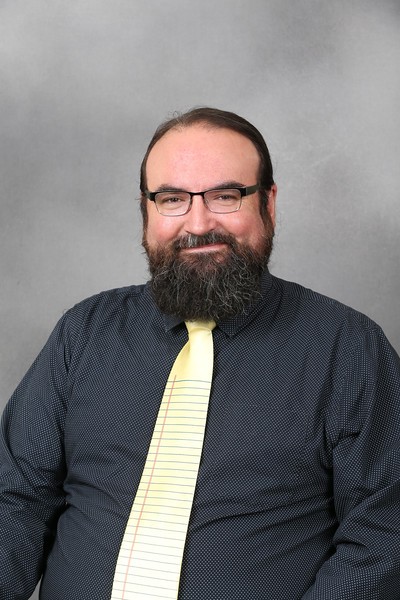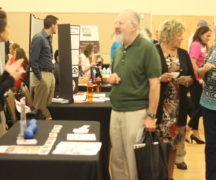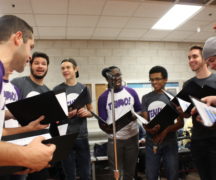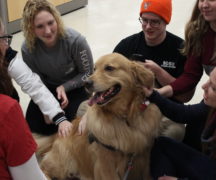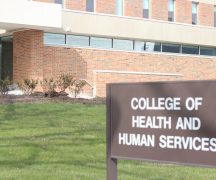From THE OPTIMAL AGING INSTITUTE
On April 20, at 5:30 p.m. at the Simpson Garden Community Center, “Communicating with Loved Ones Who Have Dementia: Practical Pointers” will offer simple strategies to help make communication easier and to provide stimulation and mental exercise for people with dementia. In partnership with the Optimal Aging Institute, this event is co-sponsored by Bowling Green Manor and Bowling Green Care Center, Brookdale Bowling Green, and Sincera Supportive Care and Symptom Relief. Brent Archer, Ph.D., assistant professor of communication sciences and disorders at BGSU, and his wife, Ramona Olvera, Ph.D., head of the Behavioral and Social Sciences Department at Owens Community College, will be presenting their professional expertise as well as their personal experiences with a family member with dementia.
With a Ph.D. in Applied Languages and Speech Sciences, Dr. Archer specializes in aphasia, an inability to comprehend and formulate language because of damage to specific brain regions. He has worked in a professional capacity with people with degenerative brain diseases, such as Alzheimer’s disease and other dementias. He also has personal experience interacting with his mother in-law, who had dementia and lived with his family for two years. Throughout the program, Dr. Archer and Dr. Olvera will have an interactive discussion and give communication pointers, as Dr. Olvera was the primary caregiver for her mother.
“Having dementia has a big impact on people’s [sense of] identity and who they are,” Dr. Archer said. “Some people don’t realize that, in the end, all [brain] functions can be affected.”
Communicating with someone who has dementia can be difficult, and it gradually gets worse. According to Dr. Archer, not being able to access memories makes it hard to communicate in a normal way, and at some point in their disease course, people with dementia will struggle to express themselves as well as to understand others.
While dementia usually affects adults older than 65, people may also contract early-onset types, and one’s risk of contracting some sort of dementia increases with age. Although there are no sure-fire ways to avoid dementia, there are steps one can take to possibly mitigate that risk, or to slow the disease, such as being physically and socially active.
“Staying actively engaged in the community helps keep the brain active,” Dr. Archer said.
“Things such as having a job outside of the home gives structure to the day and keeps the brain engaged,” he added.
In addition to an overview of how dementia affects communication, Drs. Archer and Olvera will discuss communication-based activities and tips to provide stimulation and mental exercises for people with dementia. Some of these activities, such as reading and crossword puzzles, can challenge the brain and create stimulation for those with mild to moderate cognitive impairment.
“It doesn’t have to be anything fancy. Anything that engages mental activities is good for those suffering from dementia,” Dr. Archer said.
Registration for this program is encouraged at www.bgsu.edu/oai or by calling (419) 372-8244. Walk-ins will also be welcomed. Light refreshments will be available for those coming directly from work. Community members as well as paid caregivers are all encouraged to attend this informative program.

